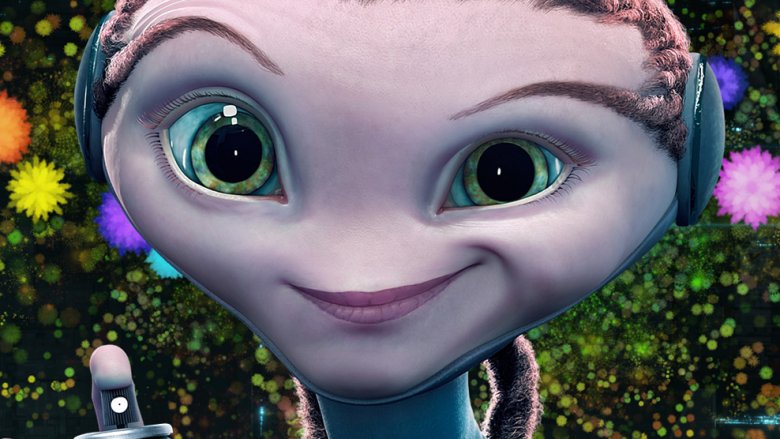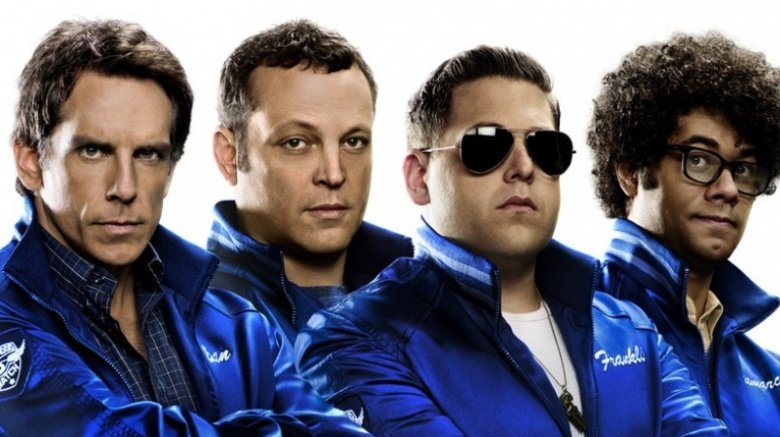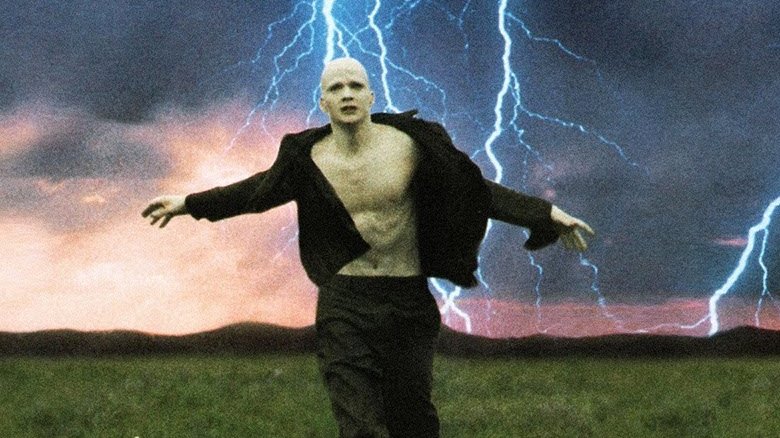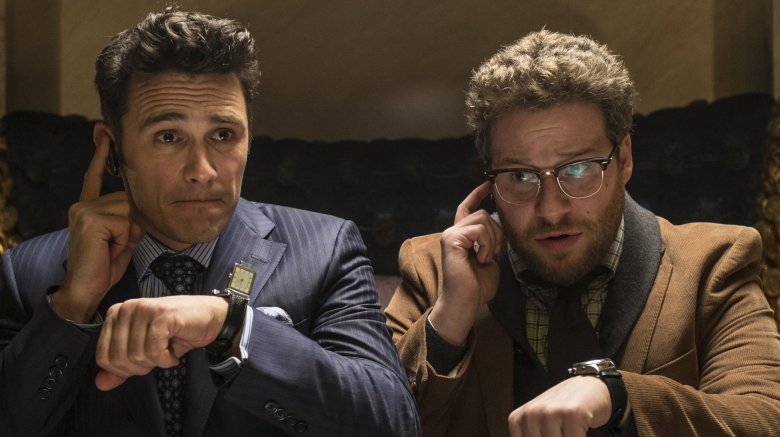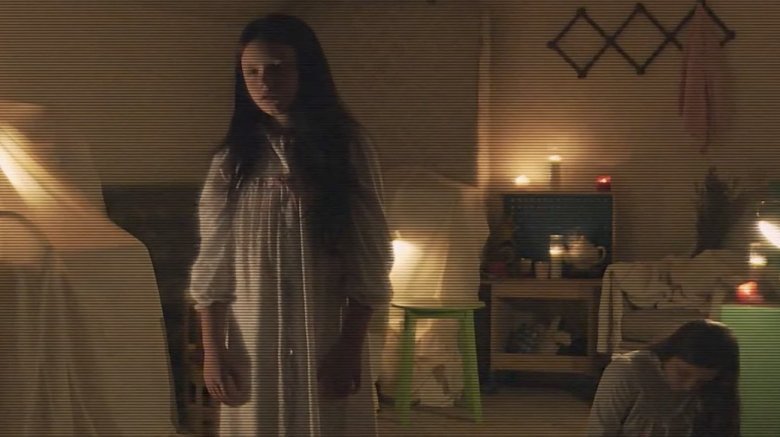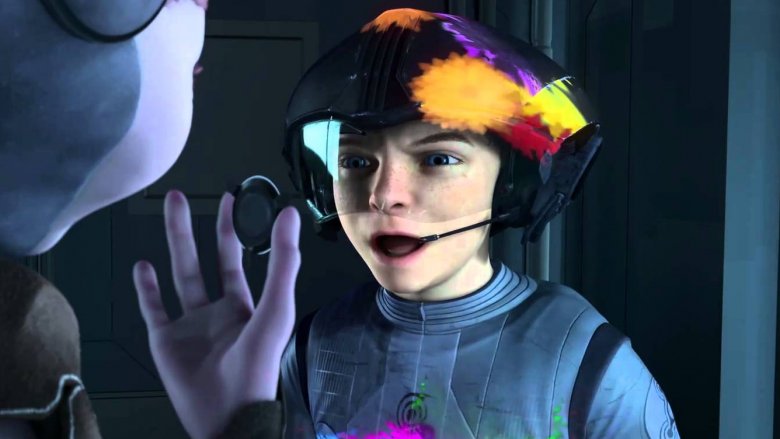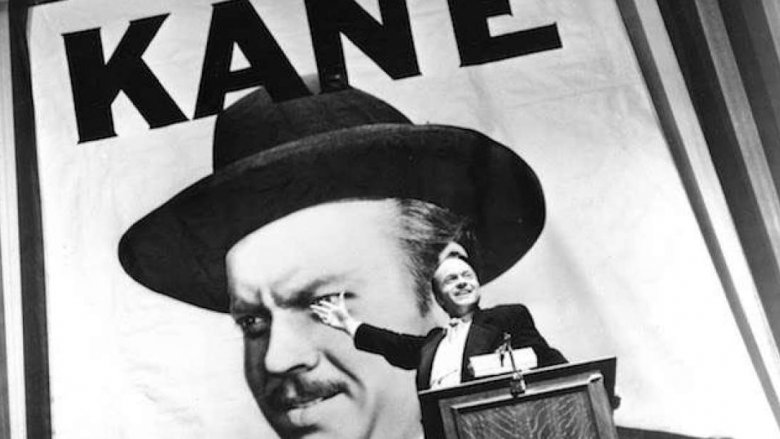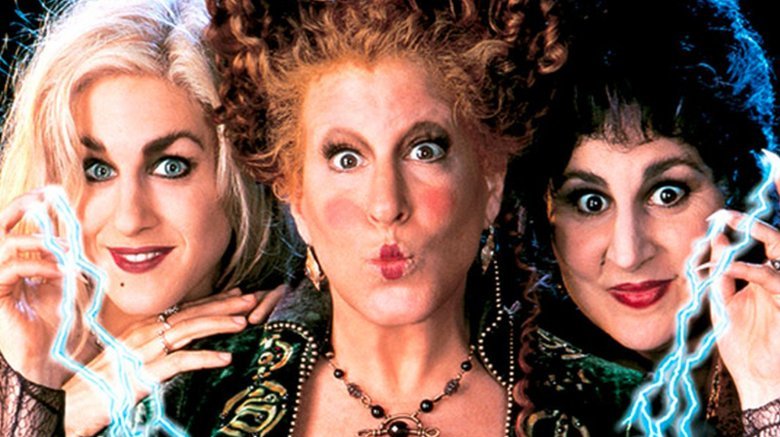Movies That Flopped At The Box Office For Really Weird Reasons
We may receive a commission on purchases made from links.
There are a lot of reasons why movies don't find an audience. Predicting which films will succeed and which won't isn't an exact science — otherwise, Hollywood would never need to suffer the indignity of watching a movie flop. A release might miss the mark because it only has niche appeal, it might be sunk by poor word of mouth or negative critical reviews, or it might be poorly or inadequately marketed. Those are some of the most common reasons, but they aren't the only ones — there's a long list of bizarre ingredients that have gone into some of the film industry's most embarrassing flops, and with that in mind, we've rounded up some of the strangest. Here's a look at some movies that flopped at the box office for really weird reasons.
Nobody wanted to watch 'The Watch,' or anything else
Tragic real-life events sunk this Ben Stiller/Vince Vaughn sci-fi comedy — not once, but twice. Marketing for the movie — initially titled Neighborhood Watch — started in February 2012, with the release of a teaser trailer and some posters. It was scheduled to debut in theaters on July 27, 2012, but that March, studio 20th Century Fox had no choice but to drastically scale back its promotion in the aftermath of Florida neighborhood watch captain George Zimmerman shooting unarmed African-American teenager Trayvon Martin.
Fox stuck with that late-July release date, but downplayed the neighborhood watch element with a title change, switching to The Watch. The film might have done all right at the box office, but theatrical attendance figures plummeted across the board during the weekend of July 27. At a late-night showing of The Dark Knight Rises in Aurora, Colorado, a week earlier, gunman James Holmes opened fire, killing 12 and injuring 58. According to a survey from researcher NRG, 20 to 25 percent of moviegoers said they were afraid or reluctant to go to the movies right away. The Watch quietly earned $35 million in theaters — about half of its budget.
There was a shocking dust-up over 'Powder'
The 1995 movie Powder looked to be one of those tearjerking family films about a magical kid who sweeps into people's lives and teaches them lessons about love and kindness — somewhere along the lines of The Sixth Sense or The Odd Life of Timothy Green. Sean Patrick Flannery starred as Jeremy Reed — nicknamed Powder due to his Albinism — a kid with telepathic and supernatural gifts that he uses to profoundly affect everyone he encounters.
Powder was directed by Victor Salva, who shortly after the film's release was revealed to be a convicted child molester. (He served three years in prison for assaulting a 12-year-old boy who had acted in some of his previous films.) One of Salva's victims picketed a Powder screening in the Los Angeles area and passed out fliers calling for a boycott. The man, Nathan Winters, said he was "in awe" that family-friendly Walt Disney Studios would hire someone like Salva, who he argued "should not be allowed around children ever again." Disney claimed it didn't know about Salva's criminal past until filming was underway, and that it was no big deal because there weren't any minors on set and Salva was instructed to let the crew know about his past. That was all too much for moviegoers, and Powder earned a paltry $30 million at the box office.
Nobody thought 'The Interview' went well
In The Interview Seth Rogen and James Franco play a producer and talk show host, respectively, sent on a mission to North Korea to get into the good graces of Kim Jong-un (Randall Park)...and assassinate him. North Korea wasn't a fan of the concept, and in retaliation, hackers broke into distributor Sony's computers and threatened to bomb any American theater that dared to screen the film.
The Department of Homeland Security didn't think the threat was credible, but getting a theater blown up tends to be bad for business. Major and minor exhibitors — including Regal Cinemas, Cinemark, Cineplex, AMC, Bow Tie Cinemas, Carmike, Southern Theatres, B&B Theatres, ArcLight Cinemas, MJR Digital Cinemas, and Wehrenberg Theatres — all decided to delay or outright cancel their plans to show The Interview. Sony blinked and pulled the movie from theatrical distribution altogether, opting instead for a video-on-demand release.
Movie theaters tried to ghost on 'Paranormal Activity: The Ghost Dimension'
Epic event movies like Black Panther or the latest Star Wars are just more fun in the theater, what with the huge screen, seat-shaking speakers, and the excitement of hundreds of other enthusiastic filmgoers. But most movies are fine in the comfort of one's own home on a big-screen TV with a soundbar attached, and films hit DVD and streaming services in just a couple of months...or even less.
In 2015, Paramount planned to make Paranormal Activity: The Ghost Dimension, the sixth film in that spooky series, available for home viewing just 17 days after its theatrical release. Because of that, two of North America's largest theater chains, Cinemark and Regal Cinemas, refused to show the movie at all, leaving the movie to open on a relatively paltry 1,350 screens. It took in a total of $18 million, about half of the cash earned by the previous Paranormal Activity installment.
'Mars Needs Moms' needed to be less creepy
Admittedly, Mars Needs Moms needed to make Avatar levels of cash to earn back its budget: The CGI-animated film cost $150 million to produce due to all that cutting-edge technology. (The plot: Martians kidnap a mom, because, well, Mars needs moms.) The space and Mars scenes were lavishly and beautifully animated (it was produced by technological wizard Robert Zemeckis, the man behind Back to the Future and Forrest Gump), but the parts with human and humanoid characters were more than a little unsettling.
Blame the "Uncanny Valley." It's a robotics theory that predicts humans will accept 'bots that have human features but which are still very obviously robots. However, once that robot starts to look too human and yet we still know it's a robot, we respond with feelings of dread and discomfort. The concept applies to ultra-realistic, CGI-animated humans, too. If characters look like real people instead of the cartoon characters that they are, humans don't like it. At any rate, the nearly $200 million Mars Needs Moms attracted just $21 million worth of business.
Even the studio knew 'Aloha' was terrible
Cameron Crowe has made some fantastic films, such as Almost Famous, Jerry Maguire, and Say Anything. Sometimes, however, he misses the mark completely — like with Elizabethtown or Aloha. That last one was a stinker, but at least audiences had the luxury of knowing it was bad before they paid $12 to see it.
The widely publicized 2014 hack of Sony Pictures' emails revealed that studio boss Amy Pascal thought the movie was unappealing and terrible long before its release. "People don't like people in movies who flirt with married people or married people who flirt," one Pascal email read. "I'm never starting a movie again when the script is ridiculous. And we all know it." The movie's prospects weren't helped much by a pre-release whitewashing scandal — the Hawaii-based film took some heat for casting Emma Stone as a Chinese-American character named Allison Ng. Total gross: $21 million, which is quite low for a film by a "name" director that starred Stone, Bradley Cooper, and Bill Murray.
'Aqua Teen' filmmakers accidentally triggered a bomb scare
In 2007, the bizarre Adult Swim animated series Aqua Teen Hunger Force made the jump to theaters with a feature-length outing titled, uh, Aqua Teen Hunger Force Colon Movie Film for Theaters.
To promote it, Adult Swim hired a New York advertising company called Interference to stage an edgy viral marketing campaign. Video artists Peter Berdovsky and Sean Stevens concocted battery-operated light boxes that displayed a pixelated image of a Mooninite — a villainous alien from Aqua Teen — brandishing a raised middle finger. The devices were surreptitiously left in public places in major cities, including New York, Los Angeles, Chicago, and Atlanta. Those boxes sat around for two weeks to little notice, but one left in Boston triggered suspicion of a terrorist attack.
On the morning of January 31, 2007, a person at the Sullivan Square bus station noticed a light box under an overpass and reported it to authorities...who blew it up. Large swaths of the city were shut down while all the other light boxes could be located and destroyed. By the end of the day, Adult Swim's corporate parent, Turner Broadcasting, confessed that everything had been a publicity stunt and a huge misunderstanding. Turner publicly apologized and promised to pay $2 million to reimburse all the local and national agencies involved in thwarting the not-terrorist attack.
There apparently is such a thing as bad publicity — the Aqua Teen movie, permanently linked to the Boston debacle, potentially turned off more filmgoers than it had wanted to attract, and ended up bringing in a paltry $5 million at the box office.
'Citizen Kane' was a little too real for some people
Citizen Kane is widely regarded as one of the greatest films ever made. Director and co-writer Orson Welles stars as Charles Foster Kane, a fabulously wealthy newspaper magnate who dies alone in his mansion. Much of the movie is told in flashback, revealing Kane to be a tyrannical boss and deeply unhappy man with a scandalous personal life. To those in the know in 1941, Kane was obviously based on real-life newspaper tycoon William Randolph Hearst, who also lived in a giant mansion and had a scandalous personal life. Hollywood gossip columnist Hedda Hopper caught an early preview of Citizen Kane and passed along her observations to her friend Hearst, who ordered all of his newspapers to drop any advertising for the film. In part because there was no press support to let people know it was out there, Citizen Kane bombed at the box office.
'Hocus Pocus' was a summer movie nobody wanted yet
Hocus Pocus is a Halloween family classic, one of the few films associated with the holiday that doesn't fall into the horror genre. Bette Midler, Kathy Najimi, and Sarah Jessica Parker chew the scenery as 17th century witches brought back to life by the same kids who ultimately have to stop them. And yet somewhere in Disney's infinite wisdom, the House of Mouse decided to release Hocus Pocus — a movie so innately about Halloween that it actually takes place on Halloween — in the middle of July. As it was released in theaters three months before most people even start thinking about Halloween, Hocus Pocus earned just $35 million. Perhaps Disney was hoping to get it out on VHS a little closer to All Hallow's Eve? Nope. Hocus Pocus was released on video in early September...the following year.
